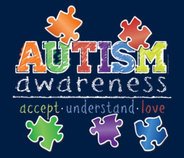 Affirmations are positive statements or self-scripts that can condition the subconscious mind to help you develop a more positive perception of yourself. Affirmations can help you to change harmful behaviours or accomplish goals, and they can also help undo the damage caused by negative scripts, those things which we repeatedly tell ourselves (or which others repeatedly tell us) that contribute to a negative self-perception. Affirmations are easy to create and use, but you'll need dedication to make them work. Think about what negative scripts you want to counteract or what positive goals you want to accomplish. Affirmations can be extremely useful to counteract negative perceptions you have developed about your appearance, your abilities, or your potential (we'll refer to these types of affirmations as "counter-scripts"). Affirmations can also help you achieve specific goals, such as losing weight or quitting smoking. Make a list of your goals or the harmful self-perceptions you want to change. Using Affirmations: Prioritize your list of things to work on. You may find that you have a lot of goals or that you need many counter-scripts. It's best, however, to concentrate on just a few affirmations at a time, so choose those that are most important or most urgent and work with those first. Once you see improvement in those areas or accomplish those goals you can develop new affirmations for other items on your list. You can try using as many affirmations as you want at any given time, but you may want to start by using no more than five. Writing and Working on your affirmations: · Start with "I," and be short, clear, and positive. Use present tense. · Write it in a way that you can feel it right for you (using words that are meaningful for you or in a way that you can believe it) · For example is you want to use “I Love myself” but you feel that you can’t believe yet, you can try: “I am willing to love myself everyday a little bit more” · Make your affirmations visible so you can use them. Repetition is the key to making affirmations effective. You want to think about your affirmations several times a day, every day. · Make a point of writing your affirmations in a journal or diary each morning when you wake up and each night before you go to sleep. Repeat the affirmations to yourself at these times, as well. · Ideally, your affirmations should be the first thing you think of when you wake up and the last before you go to sleep. · Meditate on your affirmations. Close your eyes, shut out the rest of the world, and think about your affirmations. Say and repeat the words, but think about what the words mean to you; think about the future and try to feel the emotions that the affirmations evoke. · Leave reminder cards in various places. Use 3X5 index cards or sticky notes to write your affirmations (one per card). Make several cards for each affirmation, and then leave these cards where you will see them: place one where you sit at the kitchen table, tape one to your car's steering wheel, slip one inside your desk drawer, or stick one to your computer monitor, etc. Each time you see the card, read it and think about what it means. · Carry your affirmations with you. Make a list of your affirmations and put it in your wallet or purse. If you need a pick-me-up, or if you find yourself about to waver from your goals, get out your affirmations and read them. · Continue using your affirmations. The more you affirm something, the more firmly your mind will accept it. If you are trying to accomplish a short-term goal, use your affirmations until you have accomplished it. If you simply want to use affirmations as a counter-script, use each one as long as you like. Here some examples! Love: · I love and approve myself exactly as I am // I love and accept myself exactly as I am · I am beautiful and everybody loves me · Love surrounds me and protects me · I am willing to: see my own beauty and worth to love myself exactly as I am to learn to love and accept myself · I deserve love and happiness · I deserve love and I accept it now · I attract only loving, caring people into my life · I forgive and I am forgiven · As I learn to love myself I find it easier to forgive/love/to feel appreciated. Prosperity and Abundance: · I deserve the best and I accept it now · I am open to receive · I open and receptive to all the good that life have to offer · Life/Universe/God provides me with everything I need · I trust that life protects me and brings me everything I need Trust: · Life/Universe/God supports me and guide me · I am always protected and safe · All is well · All is well in my life · Everything is working out for my highest good · I trust life/Universe/God to take care of me · I let go and I trust. I am free · I trust in the process of life Fear: · I now release myself from all pain, hurt and rejection in my past. I am free · I have nothing to fear · Whatever happens I can handle it Health: · I am healthy, loved and completed · My healing is already in process Confidence and Self Esteem: · I am confident // I believe in myself and my abilities · I am strong, powerful and confident // I move through life with confidence and ease · I trust myself // I am good enough, I am more than good enough · My good comes from everywhere and everyone // My income is constantly increasing · My work is fulfilling and I am appreciated // I open new doors to life · Wonderful new opportunities opening up for me You are always, always loved and protected. You are good enough. You deserve to live a wonderful life and so it is…  Yoga poses, deep relaxation and breathing can help reduce the high muscle tone that is characteristic of most children with a physical disability as well as help children with intellectual disabilities to release pent up anger and frustrations. Children with disabilities often experience muscular problems which can lead to a lack of sleep, among other issues. Yoga poses are designed to enhance the natural development of children with special needs and gives the muscles and tendons a relaxing stretch, releasing overall stress and tightness throughout the muscle structure and around the joints. Yoga is about connecting the mind, body and soul and by these three aspects working together, balance and alignment is brought to our human nature. Conventional methods have always treated the body or the mind, whereas, alternative methods like yoga treat all three elements. Without addressing the spirit nature of a child they can never be complete therefore the mind, body and soul connection is imperative to children with special needs. Yoga is an effective therapy that aides children with disabilities in developing greater concentration, cognitive and motor skills as well as reducing hyperactivity. Breathing and exercises eliminates excess phlegm and strengthens the respiratory system. By doing diaphragmatic and belly breathing, the digestive system is improved and constipation is relieved. Some other benefits of yoga include: • Easing stiff joints and tight and tone muscles • Muscle atrophy (wasting) caused by forced inactivity can be delayed • Promotes relaxation, physically and psychologically • The body’s metabolism improves • Improves the quality of your child’s everyday life • Allows a normal pattern of movement to resume • A great sense of well-being and renewed sense of confidence within your child can be produced Benefits of Yoga for Kids with Autism: 1. Yoga develops motor skills. Kids with autism frequently experience delayed motor development, which can be improved as yoga tones muscles, enhances balance and stability, and develops body awareness and coordination. As motor skills develop, children have a greater sense of their physical self in space and in relation to others, and can improve their gait and stability. This leads to… 2. Yoga improves confidence and social skills. Poor coordination often yields low self-esteem as kids may be singled out or teased for not moving or behaving like other children, or not excelling in sports and outdoor activities. By learning self-control and self-calming techniques through yoga, they are likely to grow confidence in interacting with other children and refine their social skills. Learning to work together in a yoga class and playing with partner poses can also increase confidence within group settings. 3. Yoga provides sensory integration. Children with autism often suffer from a highly sensitive nervous system and are easily over stimulated by bright lights, new textures, loud noises, strong tastes and smells. Yoga’s natural setting of dim lights, soft music, smooth mats, and “inside” voices creates a comforting environment largely protected from unknown or aggressive stimuli in which calming down becomes enjoyable. Yoga’s physical poses allow nervous energy to be released from the body in a controlled manner, also leading to a calming sensation. Less stimulation means less uncontrollable behavior, outbursts and repetitive nervous movements – which is further enhanced by… 4. Yoga provides coping techniques to both kids and parents. Whether teaching the child breathing techniques for self-calming, talking the class through a guided visualization the child can use when getting anxious, or sharing flashcards of the day’s poses with parents to use at home, yoga provides an awesome toolbox to parents and siblings. It is a transportable practice that both parents and kids can draw from for a lifetime and share a meaningful home activity. 5. Yoga facilitates self-awareness. Yoga is particularly instrumental in helping kids with autism learn self-regulation. By becoming aware of their bodies and aware of their breathing, yoga provides them with the ability to cope when they start to feel anxious or upset. Yoga poses or breathing techniques specifically intended to help children contend with their escalating emotions. 6. Yoga engages the emotional brain. We all know that yoga is far from purely physical, and this combination of movement, music, breath work and story telling activates the brain’s emotional region. This encourages children to develop awareness of their emotions and those of others, as well as keeps their attention in the class. Music is another powerful tool that the yoga instructor can share with parents to use at home to recreate the environment of a yoga class. - See more at: http://www.yogafitness.ie/yoga-for-special-needs-teens.html#sthash.Fx94CcnA.dpuf  You are always, always loved and protected. You are good enough. You deserve to live a wonderful life and so it is… 1) Stop criticizing yourself: If we tell ourselves that we are okay, no matter what is going on, we can make changes in our lives easily. It is when we make ourselves bad that we have great difficulty. Our ability to adapt and flow with the process of life is our power. Think for a moment about the words you use when scolding yourself or some of the phrases you hear when you were small: stupid, bad boy, bad girl, useless, careless, dumb, ugly, worthless, sloppy, dirty, etc. Are these the same words you use now when describing yourself? There is a tremendous need to build self-worth and value in ourselves, because when we feel not good enough, we find ways to keep ourselves miserable. We create illness or pain in our bodies; we procrastinate about things that would benefit us. We are all insecure in some ways because we are human. Let release the need to be perfect. Having to be perfect only puts immense pressure on ourselves, & it prevents us from looking at areas of our lives that need healing. Instead, we could discover our creative distinctions, our individualities, & appreciate ourselves for the qualities that makes us unique. 2) Stop scaring yourself: Many of us terrorize ourselves with frightful thoughts & make situations worse than they are. We take a small problem and make it into a big monster. It's a terrible way to live, always expecting the worst out of life. Examples: Someone makes a remark at work, and you begin to think you're going to be fired. You build these paralyzing thoughts in your mind. Remember, these frightening thoughts are negative affirmations. OR, people who are ill often visualize the worst or they are immediately planning their funerals. OR, someone doesn't call you immediately, and you decide that you are totally unlovable and you'll never have another relationship again, feeling abandoned and rejected. If you find yourself habitually reviewing a negative thought or situation in your mind, find an image of something you really would like to replace it with. It could be a beautiful view, or a sunset, or flowers, a sport, or anything you love. Use that image as your switch-to image every time you find that you are scaring yourself. Say to yourself, "No, I'm not going to think about that anymore. I'm going to think about sunsets, roses, Paris, yachts or waterfalls, or whatever your image is." If you keep doing this, eventually you will break the habit. 3) Be gentle and kind and patient with yourself: Impatience is a resistance to learning. We want the answers without learning the lesson or doing the steps that are necessary. Think of your mind as if it were a garden. If you take loving care and attention to this garden, it gradually keeps improving and will blossom. The same with your mind, you select nurtured thoughts & with patience they grow and contribute to creating the garden of experiences you want." 4) Be kind to your mind: Let's not hate ourselves for having negative thoughts. We can think of our thoughts as building us up rather than beating us up. We don't have to blame ourselves for negative experiences, but can learn from these experiences. Being kind to ourselves means we stop all blame, all guilt, all punishment, and all pain. Relaxation is absolutely necessary for tapping into the Power within, because if you are tense & frightened, you shut off your energy. As you become tense, take a few deep breaths, close your eyes, and release whatever tension you are carrying. As you exhale, become centered & say to yourself silently: "I love you. All is Well." You will then notice how much calmer you feel. 5) Praise yourself: Criticism breaks down the inner spirit, and praise builds it up. When you berate yourself, you belittle the Power that created you. Begin with little things." 6) Loving yourself means supporting yourself: Reach out to friends and allow them to help you. You really are being strong when you ask for help when you need it. Support groups can help, like 12 step-groups. 7) Love your negatives: No matter what negative situation you are in, it's there for a reason; otherwise you wouldn't have it in your life. 8) Take care of your body: Drug and alcohol abuse, overeating, and smoking are just some of the substances we take into our bodies to numb out the pain, and deal with life better. But, the sad fact is that it doesn't help make it better. Take care of yourself, exercise regularly so your body can help support you in whatever comes your way. 9) Mirror work: In order to find out the cause of an issue that keeps us from loving ourselves. Try looking in the mirror the first thing in the morning and say, "I love you. What can I do for you today? How can I make you happy?" Listen to your inner voice, and start following through with what you hear. Then, if something unpleasant happens to you during the day, go to the mirror and say: "I love you anyway." Affirmations performed in front of a mirror are advantageous because you learn the truth of your existence. When you do an affirmation and you immediately hear a negative response such as, "Who are you kidding? It can't be true. You don't deserve that", that is a gift you can use. You cannot make the changes you want until you are willing to see what is holding you back. The negative response you have just discovered is like a gift in that it becomes the key to freedom. Turn that negative response into a positive affirmation such as: "I now deserve all good. I allow good experiences to fill my life." Repeat the new affirmation until it does become a new part of your life. 10) "Finally, love yourself now! Don't wait until you get it right. Dissatisfaction with yourself is a habit pattern. If you can be satisfied with yourself now, if you can love and approve of yourself now, then when good comes into your life, you will be able to enjoy it. Once you learn to love yourself, you can begin to love and accept other people. We can't change other people, so leave them alone." |
Claudia Gutierrez
Physical Therapist Yoga Teacher Fitness Instructor Life Coach Dreamer... [email protected] Categories
All
Yoga Fitness BlogI am Claudia Gutierrez, owner of Yoga Fitness, originally from Argentina and proudly Irish Citizen since 2012. Archives
November 2021
|

 RSS Feed
RSS Feed
